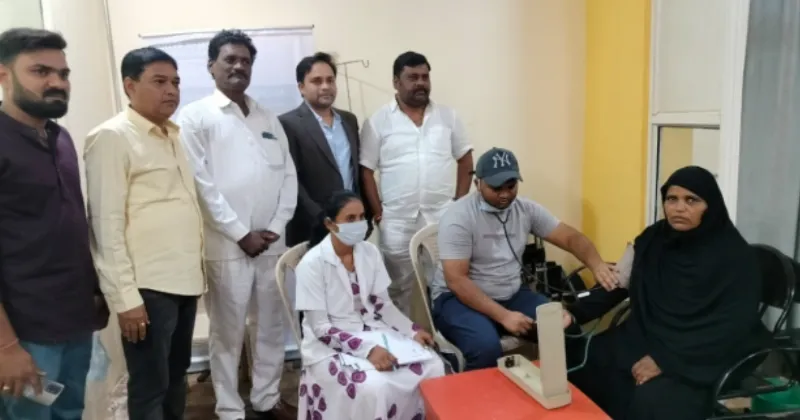Latest News
Dealing with PCOS? These 4 Steps can help you reverse it
.jpg)
According to a 2021 study published in the journal Indian Journal of Endocrinology and Metabolism, the prevalence of PCOS (Polycystic Ovary Syndrome) in Indian women was 16.3%.
PCOS is a complex hormonal condition that affects many women of reproductive age group and is one of the leading causes of poor fertility. While it's true that medication can play a role in managing PCOS symptoms, it's equally important to recognize the pivotal role that lifestyle choices can have in its management. Early symptoms of PCOS may include reduced blood flow during menstruation, delayed menstrual cycles, acne or pimples, sudden weight fluctuations, and mood swings.
Here is how Riddhi Patel, an expert nutritionist is helping such women to take charge of their health through her unique approach by helping them improve their lifestyle and providing practical steps to address it effectively.
Riddhi says “Your lifestyle choices can either worsen or relive your PCOS symptoms. Unhealthy habits, such as a diet high in processed & sugary foods and leading a sedentary life, can escalate inflammation within the body, trigger insulin resistance, and lead to increased androgen production. Androgens are male hormones that are present in women as well, but elevated levels can cause issues like irregular menstrual cycles, acne outbreaks, hair loss, and unwanted hair growth. Therefore, it's crucial to target the root causes through proper lifestyle modifications.”
Having helped hundreds of women across 7 countries overcome their PCOS, here is what Riddhi recommends for dealing with PCOS:
-
Regulate Your Sleep Pattern: A good night's sleep is essential for overall health and hormonal balance. Ensure you get 7-8 hours of quality sleep every night. A consistent sleep routine can help regulate your body's internal clock and improve your overall well-being.
-
Incorporate Physical Activity: Dedicate 30-45 minutes of structured exercise, such as walking, jogging, cycling, or yoga, at any time during the day. In addition to your structured exercise routine, aim to stay active throughout the day by taking short breaks to stretch and move around, especially if you have a sedentary job. Exercise helps improve insulin sensitivity, regulate menstrual cycles, and manage weight.
-
Opt for a Balanced Diet: Steer clear of highly processed foods and excessive sugar consumption, as they can contribute to inflammation and insulin resistance. Instead, focus on a balanced diet rich in fibre and protein to nourish your body. Incorporate whole grains, lean proteins, fruits, vegetables, and healthy fats into your meals. A balanced diet can help stabilize blood sugar levels and support hormone regulation.
-
Prioritize Mental Well-Being: High-stress levels can worsen hormonal imbalances and exacerbate symptoms. Recognize the importance of mental well-being and consider introducing meditation or mindfulness practices into your daily routine. These techniques can help reduce stress, improve emotional stability, and enhance your ability to cope with the challenges of PCOS.
By making these lifestyle adjustments, one can work towards effectively managing PCOS. It's essential to remember that PCOS is a complex condition, and while lifestyle changes can significantly improve symptoms, they may not entirely cure the disorder.
The rising cases of PCOS signifies the importance of consulting an expert who can help you with the right approach to take control of your PCOS and lead a healthier, happier life.





















